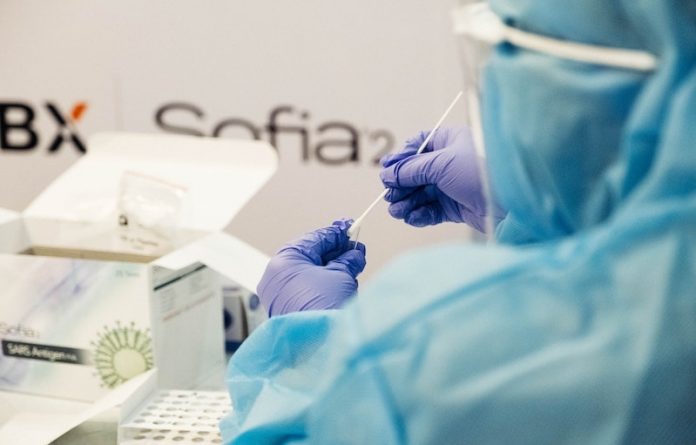
Scientists from UT Southwestern developed CoVarScan, a rapid COVID-19 test that detects the signatures of eight hotspots on the SARS-CoV-2 virus.
They showed that their test is as accurate as other methods used to diagnose COVID-19 and can successfully differentiate between all current variants of SARS-CoV-2.
The research is published in Clinical Chemistry and was conducted by pathologist Jeffrey SoRelle et al.
While a number of other tests for COVID-19 exist, they generally detect either a fragment of SARS-CoV-2 genetic material or small molecules found on the surface of the virus, and don’t provide information to identify the variant.
In addition, many researchers worry that these tests aren’t accurate in detecting some variants—or may miss future strains.
To determine which variant of COVID-19 a patient has, scientists typically must use whole genome sequencing, which is time-consuming and expensive, relying on sophisticated equipment and analysis to spell out the entire RNA sequence contained in the viruses.
In the study, the team tested CoVarScan on more than 4,000 patient samples.
CoVarScan hones in on eight regions of SARS-CoV-2 that commonly differ between viral variants.
It detects small mutations—where the sequence of RNA building blocks varies—and measures the length of repetitive genetic regions that tend to grow and shrink as the virus evolves.
The method relies on polymerase chain reaction (PCR)—a technique common in most pathology labs—to copy and measure the RNA at these eight sites of interest.
Using this test, doctors can determine very quickly what variants are in the community and if a new variant is emerging.
It also has implications for individual patients when doctors are dealing with variants that respond differently to treatments.
The testing results have helped public health leaders track the spread of COVID-19 in North Texas and make policy decisions based on the prevalence of variants.
Doctors have also used the results to choose monoclonal antibodies that are more effective against certain strains infecting critically ill COVID-19 patients.
If you care about COVID, please read studies about new treatment option for COVID-19, and vitamin D deficiency linked to severe COVID-19 and death.
For more information about COVID, please see recent studies about a universal antibody therapy for all COVID-19 variants, and results showing this new oral drug may prevent death from COVID-19.
Copyright © 2022 Knowridge Science Report. All rights reserved.



